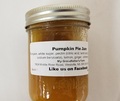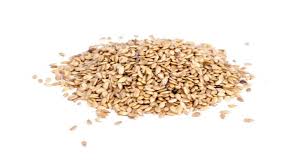The CFIA announced that My Grandfather’s Farm in Westville, Nova Scotia recalled My Grandfather’s Farm brand Pumpkin Pie Jam from the marketplace because it may allow Clostridium botulinum growth. This recall was triggered by the Canadian Food Inspection Agency (CFIA) test results. There have been no reported illnesses associated with the consumption of this product. The recalled products come in 250-milliliter jars and do not have a UPC number. The labels on the affected products are dated Sep. 10, 2020. @ https://www.inspection.gc.ca/food-recall-warnings-and-allergy-alerts/2020-11-20/eng/1605894173720/1605894179669
ruth
My Grandfather’s Farm is recalling My Grandfather’s Farm brand Pumpkin Pie Jam from the marketplace because it may permit the growth of Clostridium botulinum. Consumers should not consume the recalled product described below.
ruth
The Canadian Food Inspection Agency announced the recall of Thornloe White Cheese Curds due to generic E. coli. The presence of E. coli contamination can result in risks of Gram-negative bacterial infection. The Ontario establishment recalled certain lots of Cheddar White Cheese Curds, Dill White Cheese Curds, Caramelized Onion White Cheese Curds, and Herb & Garlic White Cheese Curds. @ https://healthycanadians.gc.ca/recall-alert-rappel-avis/inspection/2020/74377r-eng.php
Information for Thornloe brand White Cheese Curds recalled due to generic E. coli
The FDA announced the launch of a multi-year study to improve food safety through an enhanced understanding of human pathogens’ ecology in the environment that may cause foodborne illness outbreaks. Partners to this initiative include the California Department of Food and Agriculture (CDFA), the University of California, Davis, Western Center for Food Safety (WCFS), and agricultural stakeholders in the Central Coast of California. The study follows a series of outbreaks in California due to E. coli in leafy green. To prevent future infections, there is a need to address knowledge gaps. The multi-year study will examine how pathogens survive and move through the environment and contaminate produce through water quality and food safety. This study’s findings will contribute new knowledge on how various environmental factors may influence bacterial persistence and distribution in this region and how those factors may impact the risk of leafy greens becoming contaminated. This collaboration will lead to improved practices to prevent or mitigate food safety risks and ultimately enhance the safety of leafy greens grown in California. @ https://www.perishablenews.com/produce/fda-partners-with-the-california-department-of-food-and-agriculture-western-center-for-food-safety-and-california-agricultural-stakeholders-to-enhance-food-safety/
The U.S. Food and Drug Administration is announcing the launch of a multi-year study to improve food safety through enhanced understanding of the ecology of human pathogens in the environment that may cause foodborne illness outbreaks. …
ruth
Bill will add sesame as the ninth major allergen; require the federal government to analyze research opportunities to develop more effective treatments for food allergy. The legislation was first introduced in the House by Rep. Doris Matsui (CA-06) in April 2019. Its goal is to improve the food allergy community’s safety by declaring sesame the top ninth allergen as recognized by the FDA, making labeling mandatory, and expanding research to find new treatments. In March, FARE (Food Allergy Research & Education) brought together more than 150 food allergy advocates from across the country for more than 100 successful meetings on Capitol Hill urging support for this critical legislation. FARE’s grassroots advocates have sent more than 8,000 emails and held hundreds of virtual and in-person district meetings with Congress and staff members. Having been passed by the House of Representatives, the bill now heads to the United States Senate for consideration. FARE will seek to introduce both bills during the first 100 days of the 117th Session of Congress. @ https://www.foodallergy.org/media-room/us-house-representatives-unanimously-passes-faster-act-represents-significant-milestone
Bill will add sesame as the ninth major allergen, require the federal government to analyze research opportunities to help develop more effective treatments for food allergy




